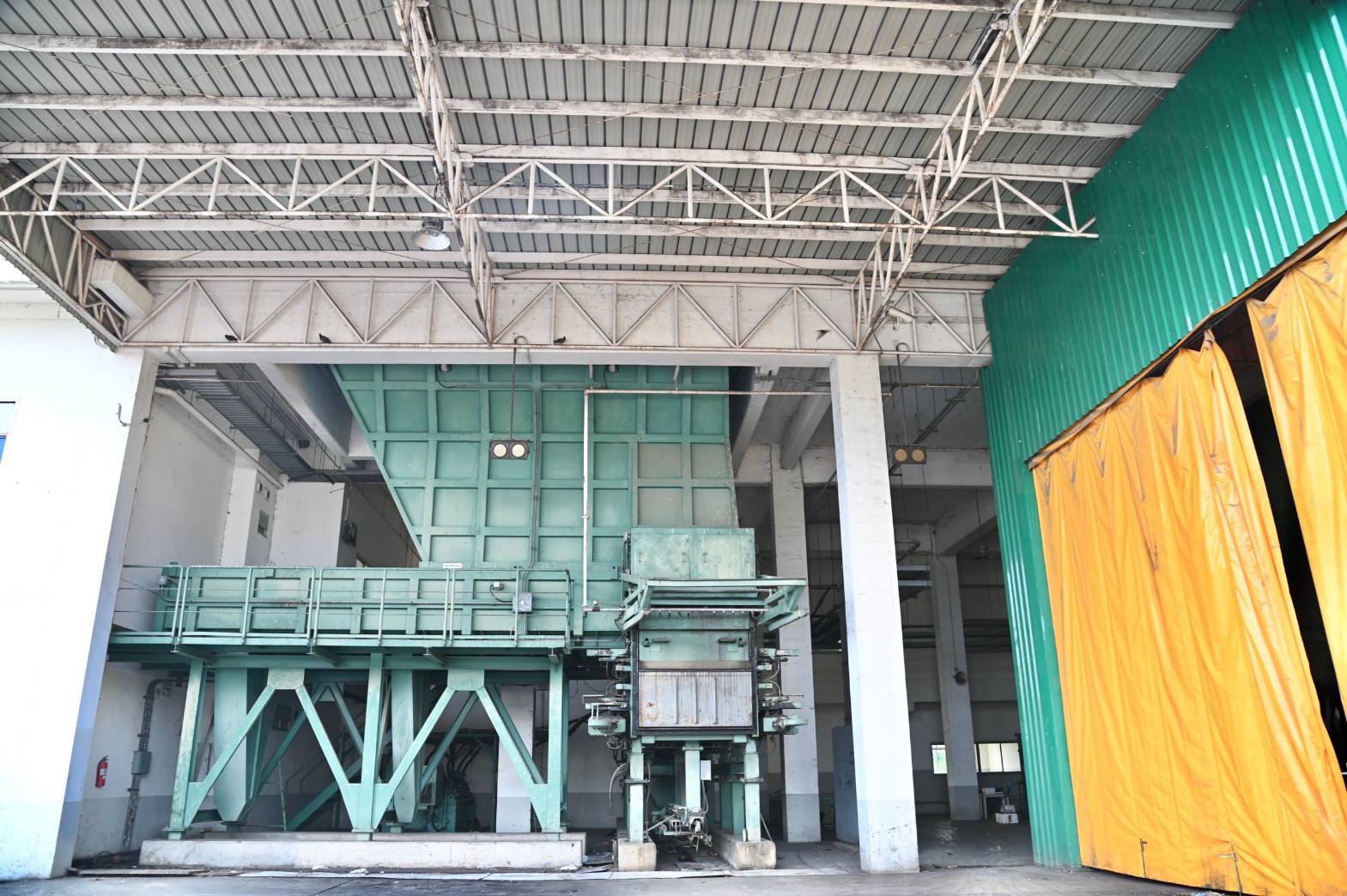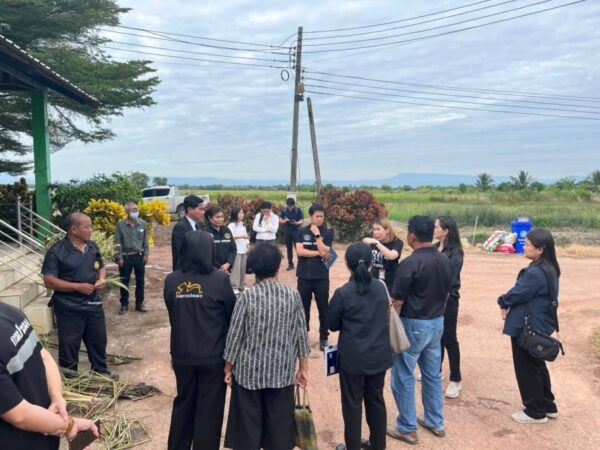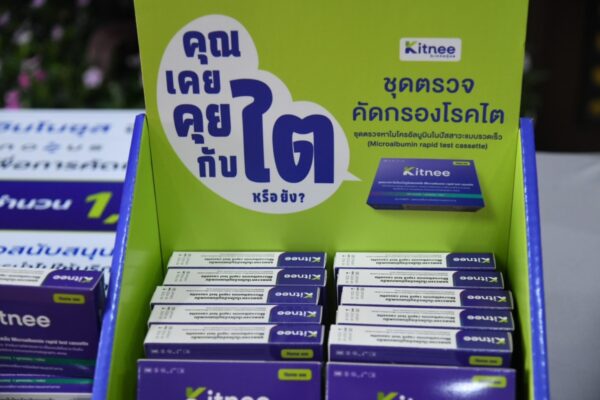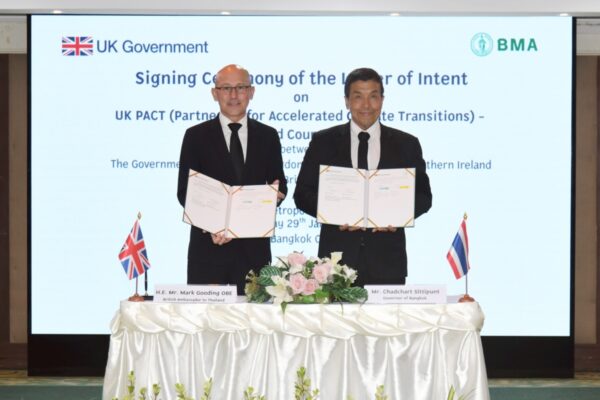(February 4, 2025) Mr. Chakkaphan Phewngam, Deputy Governor of Bangkok, visited the Nong Khaem Waste Management Center to inspect the progress of the city’s new waste transfer station. The project, led by the Bangkok Metropolitan Administration (BMA) Environment Department, focuses on properly managing and disposing of waste while converting it into energy.
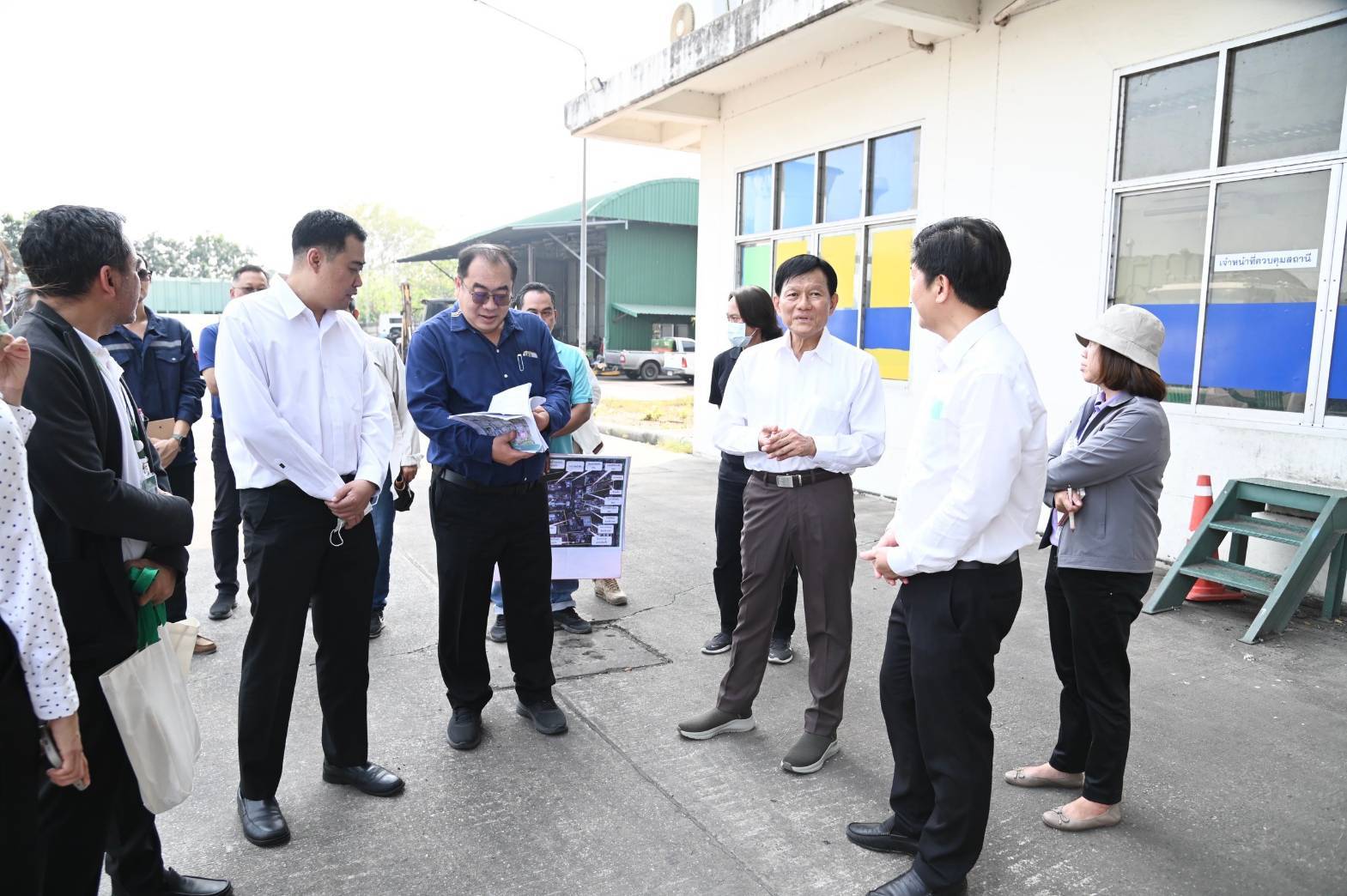
During the visit, Deputy Governor Chakkaphan instructed the contractor to ensure all machinery and systems are fully operational. If any equipment is damaged, it must be repaired immediately. He emphasized the need to maintain key facilities such as the waste unloading control office, the waste reception building, the waste container washing facility, and the leachate treatment system that handles wastewater from waste sorting. Additionally, he stressed the importance of the air treatment and dust control systems, as well as general site improvements and regular cleaning to keep the area tidy.
To prevent any inconvenience to nearby residents, he stressed the importance of maintaining strict odor control measures. The wastewater treatment system was also inspected, and the BMA Environment Department was instructed to closely oversee the project to ensure the contractor adheres to all agreements. The initiative aims to improve waste management efficiency, convert waste into energy, and reduce landfill dependency while meeting environmental standards.
The new waste transfer station at Nong Khaem spans 18 rai. A private company was responsible for constructing the facility and now oversees its waste disposal operations and ongoing maintenance. The system utilizes environmentally friendly technology to convert waste into energy, reducing reliance on landfills while maximizing the recovery of valuable resources.
The facility has a daily waste processing capacity of no less than 1,000 tons, with a maximum capacity of 1,100 tons per day. The project operates for 20 years under a Build, Own, Operate (BOO) model, and upon completion, all assets constructed within the private sector’s area will become the property of the private company.
The project follows legal regulations under the Act on the Maintenance of the Cleanliness and Orderliness of the country (No.2), B.E. 2560 (2017) and the Public Procurement and Supplies Administration Act, B.E. 2560 (2017). It was contracted to Group 79 Co., Ltd., with a total project duration of 23 years from 2018 to 2040. The construction phase took place from September 2021 to September 2023, and operations began in September 2023, running until August 2043.
The contractor has completed the construction of a waste sorting plant in Kamphaeng Saen, Nakhon Pathom, as well as the renovation of the Nong Khaem waste transfer station and the development of a landfill in Kamphaeng Saen. Waste processing officially began on September 1, 2023. In addition to waste management, the contractor has also repaired odor-control systems, upgraded signage, and improved landscaping at the Nong Khaem facility.
The waste disposal process at the new waste transfer station follows these key steps:
- Collection of 1,000 tons of waste per day from communities and transport to the new waste transfer station.
- Weighing municipal waste trucks and recording incoming waste weight.
- Unloading waste at the waste reception facility.
- Compacting waste before transferring it into waste transport containers.
- Loading waste directly into trailers for transport.
- Processing leachate treatment and air purification.
- Weighing outbound trailers before transporting waste to the community waste management facility (1,000 tons/day capacity) in Kamphaeng Saen, Nakhon Pathom.
- Weighing inbound trailers at the sorting facility before waste separation begins.
- Opening and shredding waste bags for preliminary processing.
- Manual sorting of recyclable waste by workers.
- Separating metal waste using conveyor systems.
- Sorting glass waste without breakage and removing natural materials.
- Screening waste to separate organic matter.
- Manual sorting of additional recyclables.
- Air separation process to remove hazardous waste.
- Further screening to isolate small organic materials.
- Leachate treatment, dust control, and air purification for the entire process.
- Recovered materials include:
- Organic waste → Processed into organic fertilizer
- Recyclable waste → Repurposed and reused
- Hazardous waste → Properly disposed of through landfill
- Non-hazardous combustible waste → Used as fuel
The site visit was attended by Mr. Praphat Lueangsirinapha, Director of the Environment Department, along with senior executives, government officials, staff members from the Environment Department, representatives from Group 79 Co., Ltd., and other relevant agencies.
EnvironmentalManagement #EfficientWasteDisposal
—————————-

